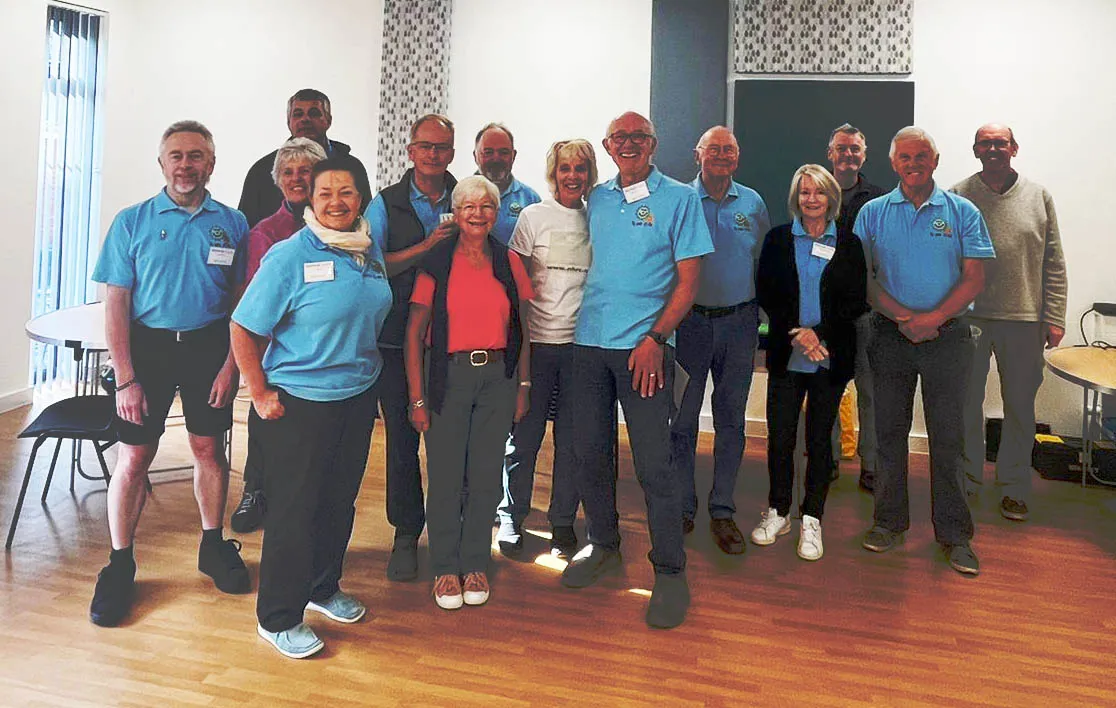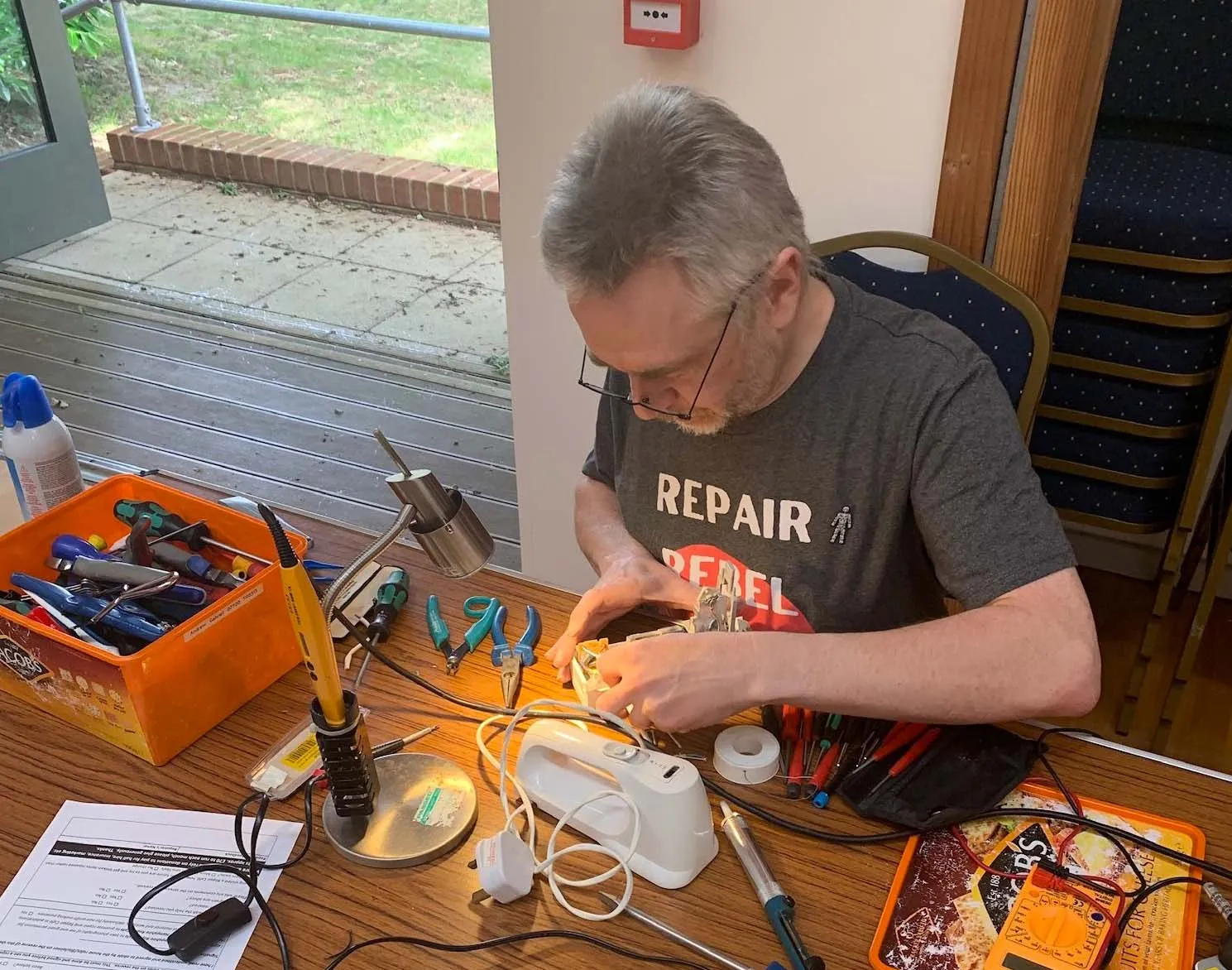
‘Fixability’ is the key to sustainability for North Hampshire Repair Café
Your toaster suddenly gives up the ghost. What do you do? It’s tempting to order a new one online. It’ll probably arrive tomorrow.
But hang on. There’s now an alternative on your doorstep in the shape of the North Hampshire Repair Café. They could save you money while also helping the environment.

North Hampshire Repair Café is a volunteer group that tours the district offering a free repair service to residents at drop-in sessions.
“We describe ourselves as a team of talented repairers who repair and recycle as much as we can,” says founder Derek Prior.
Derek has been passionate about the environment and sustainability since the 1970s. After hearing about the worldwide Repair Café movement, he set up the North Hampshire group in 2022 with a generous start-up grant from Hampshire County Council.
The group has 30 regular volunteers.
They are local people who just love fixing things and have a huge range of skills between them. For example, James fixes clocks, watches and musical instruments. Ian specialises in automotive electronics. Frank builds and mends his own kaleidoscopes. Simon is a kit-car enthusiast. Gary even managed to fix a 3D printer, which is a great example of the very latest technology.
They fix what they can on the day. Sometimes they ask the owner if they can take an item home to work on it. Derek once took home six table lamps and fixed them all.
Repair Cafes are held more or less monthly at venues around the district such as St John’s Church, Hartley Wintney, and Sherfield Village Hall. North Hants is one of almost 300 Repair Cafés up and running across the UK.
We dropped into the meeting at St John’s Church, Hartley Wintney, on Saturday 28 October 2023.
The hall was buzzing with visitors watching as repairers worked on their broken items. Others were enjoying hot drinks and snacks while waiting their turn.
We saw clocks, watches, vacuum cleaners, garden tools and games. The largest item on view was a 1960s music centre, resplendent in its wooden cabinet with storage space for long-playing vinyl records.
Steve from Finchampstead showed us a portable Phillips television he’d brought in because it’d started making clicking noises. “It’s a good TV and there’s nothing else wrong with it,” he said. “I don’t want to buy a new one if this is fixable.”
Fixability is the key to sustainability for the Repair Café. By September 2023, Derek estimated the group’s work had prevented over a tonne of items from being thrown out and dumped.
That saved about 7.5 tonnes of greenhouse gases.
Most would’ve been generated during the manufacturing, storage and transport of replacement items. They'd have cost local communities about £42,000 to buy new, at a time when people are facing a cost-of-living crisis.
These numbers will grow over the coming years, particularly if more young people get involved, says Derek. “It’ll be great if we can get everyone in the community working together to avoid waste and make the environment a better place. But what our whole team really enjoy the most is seeing the huge smile across the face of a customer as they leave clutching their repaired item!”
Visitors are invited to make a donation to the group. It’s for a great cause that’s doing brilliant work for local people and for the environment.
Photos: Derek (centre) with the team and a food mixer being repaired.
Next section: Case study on zero-waste shopping with Fleet Scoop


